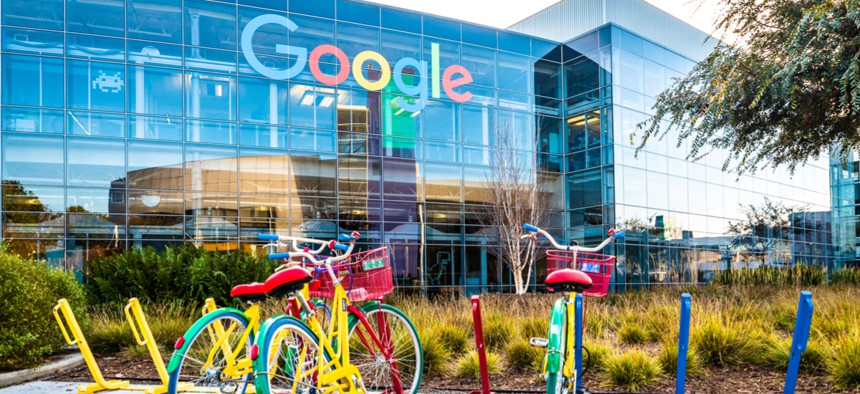Big Tech Companies Won’t Change Until They Are Regulated Like Banks

Uladzik Kryhin/Shutterstock.com
There would be many bureaucratic hurdles to overcome, however.
Since September, Google has been in contempt of the US District Court of Northern California—a penalty for refusing to hand over foreign-stored emails in response to government search warrants. The district has hit Google with a fine of $10,000 for every day the company refuses to cooperate. (Google, meanwhile, is appealing the decision, so the payments won’t begin until a higher court weighs in.)
“The cost to Google of refusing to comply with these warrants will quickly add up,” wrote the judge issuing the order. “Viewed in this broader context, the $10,000 per day sanction proposed by Google should prove sufficiently coercive.”
But this is like giving a professional athlete a paper cut and expecting him to change his game. Google’s parent company, Alphabet, is valued at close to $690 billion; last quarter, the company reported $26 billion in revenue. In June, the European Commission slapped Google with a record-breaking €2.4 billion ($2.7 billion at the time) fine for breaking antitrust rules, and warned of more to come. Investors shrugged, and the company’s shares are up around 25% so far this year.
Over the past year or so, the EU has also fined Facebook, Amazon, and Apple for various tax and competition transgressions. Besides some bad press, billions of dollars worth of penalties have done little to put the tech giants off their stride.
Sound familiar? Since 2008, big banks have been hit with more than $300 billion in fines for a wide variety of wrongdoing, from selling toxic subprime securities to manipulating markets and skirting sanctions. And while Wall Street giants like JPMorgan and Goldman Sachs are still making plenty of money, they’re not doing it in quite the same way as before. Revenue from racy trading operations, where much of the activity that triggered the fines took place, is down across the industry.
It’s possible that this is a result of historically low market volatility, but what’s more likely is that the 2010 Dodd-Frank Act, a 2,300-page piece of legislation designed to restrain banks in the aftermath of the global financial crisis is having an effect.
While some hope Donald Trump will roll back Obama-era regulations on big banks, JPMorgan CEO Jamie Dimon thinks that’s highly unlikely. Meanwhile, even historically a pure-play investment banks like Goldman Sachs are expanding into stodgier retail businesses and plain-vanilla lending lines. Protests that stricter rules would stifle innovation were dismissed in favor of promoting a safer but less profitable financial system.
A bill proposed this week by a group of US senators would require social media companies to disclose more details about online political advertisements, currently almost entirely unregulated in the country. Facebook in particular is under fire for hosting fake accounts and running ads placed by Russian operatives that may have swayed the 2016 presidential election.
There are many bureaucratic hurdles to overcome in passing laws to rein in globe-spanning tech giants, which spend big to lobby against changes. The lesson from recent history is that if regulators want tech firms to change their ways, they should treat them like banks.





